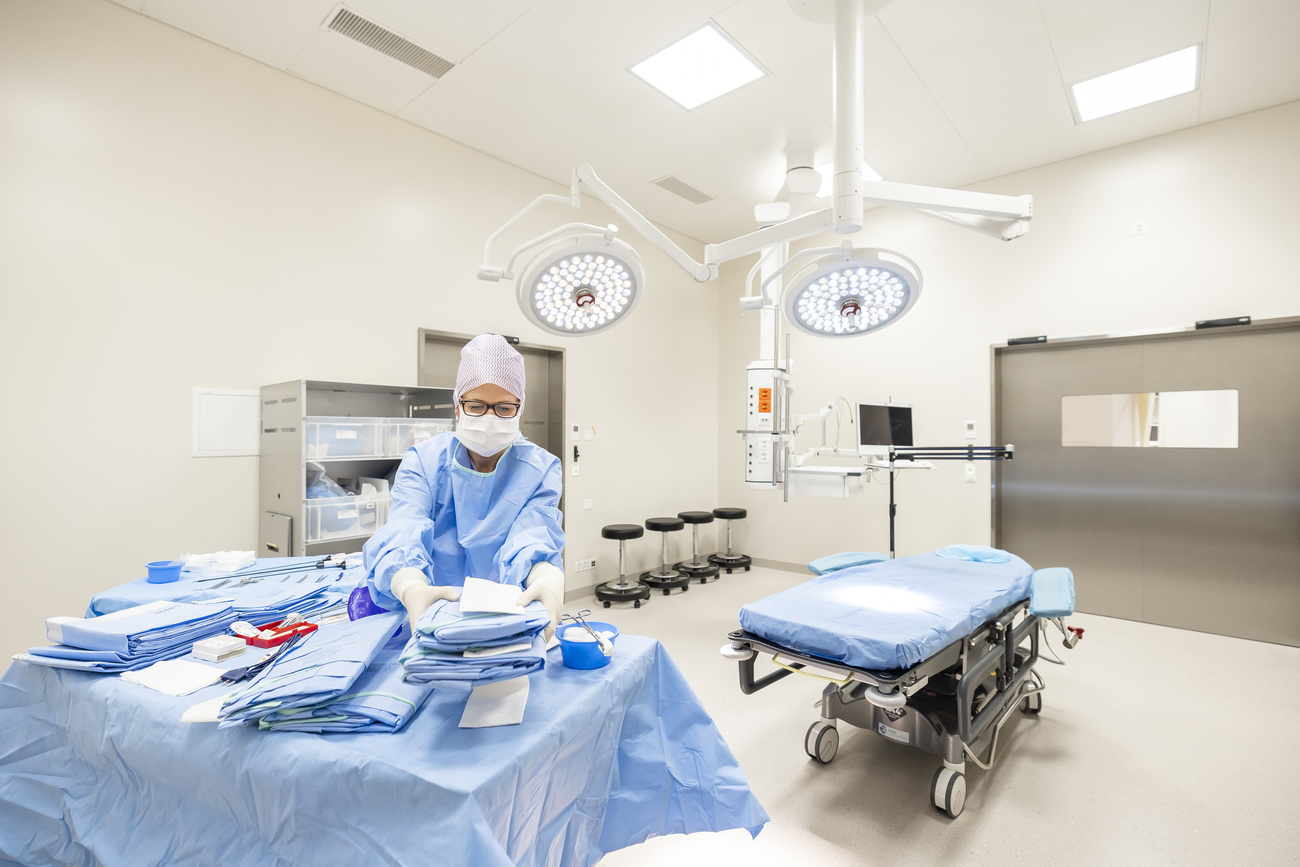Solo controllers banned at Skyguide

Skyguide, the Swiss air traffic controller at the centre of last week's air disaster, has been ordered to maintain at least two officers on duty at all times.
The Swiss Federal Office for Civil Aviation on Tuesday banned Skyguide from any “single manned operations” at its air traffic control centres.
Skyguide is facing growing scrutiny of its operations after two planes collided in Swiss-controlled airspace above southern Germany, killing 71 people, most of them children.
The government-owned company had only one man on duty in its Zurich control centre when the crash occurred. A second operator was away on a break.
The civil aviation office also announced on Tuesday that the officer on duty at the time of the collision has been suspended from work until further notice.
But Swiss authorities said the suspension of the Skyguide employee did not imply that the aviation authority was holding him responsible for the accident.
On the morning after the crash, the company said it maintained a minimum of two controllers on duty at all times.
However, the company has not explained why only one man was on duty at the time of the tragedy.
The Swiss aviation authority also said it had told Skyguide in May to allow single manned operations only in very unusual circumstances during the day and Skyguide had agreed to this.
Georg Auf der Maur, an aviation expert and former air traffic controller at Zurich airport, told swissinfo that Skyguide has failed to adequately explain its minimum staffing regulations.
“For instance, I know for a fact that they always have a minimum of four on duty in Geneva,” said Auf der Maur.
Skyguide’s procedures questioned
The move by the civil aviation watchdog to impose a minimum staffing limit has raised further questions about Skyguide’s operations.
On Monday, the release of voice recorder information revealed that the Swiss air traffic controller unwittingly set the two planes on a collision course.
The recorders show the Swiss air traffic controller contradicted the Russian jet’s cockpit warning systems. Seconds earlier the pilots had been told to gain altitude because the oncoming Boeing 757 cargo plane had been ordered to descend by its own warning systems.
The Russian pilots obeyed the air traffic controller, and began to descend, not realising that the Boeing was doing the same.
Swiss aviation analyst, Sepp Moser, said the Russian pilots were wrong to listen to the controller, and should have followed the instructions of their own system.
“Both traffic collision avoidance systems were working properly, and the Russian pilots made a mistake because in such cases it is common, and standard procedure, that the pilot obeys the computer and not the air traffic controller,” he told swissinfo.
Germans issued alert
Also on Monday, German aviation officials said they tried to warn Swiss controllers ahead of last week’s mid-air collision.
German controllers in the southern city of Karlsruhe say they telephoned the Zurich tower two minutes before the fatal accident but could not get through because the only available line was busy.
Axel Raab, spokesman for the Karlsruhe control centre, said staff tried to get in touch with the lone controller after receiving an automatic radar warning that the Russian passenger jet and the Boeing 757 were on a collision course.
At the time, the Swiss controller was using a back-up line while routine maintenance work was being carried out on the main telephone system, according to the German Federal Bureau of Aircraft Accidents Investigations (BFU).
The civil aviation authority said on Tuesday that the controller working at the time of the crash had been removed from duty until further notice.
It also said Skyguide was only supposed to turn off safety systems for maintenance when compensating through other measures, such as extra staff.
Technical problems
German investigators said the Swiss controller on duty in Zurich was battling with technical problems.
They said Skyguide was working on its telephone and radar systems on the night of the crash.
According to the Germans, Skyguide’s air traffic controller was not only without his main telephone line, but around the same time Skyguide’s radar data processing system momentarily went out of action.
The problems meant the air traffic controller was simultaneously monitoring two frequencies and two radar monitors.
swissinfo with agencies

In compliance with the JTI standards
More: SWI swissinfo.ch certified by the Journalism Trust Initiative








You can find an overview of ongoing debates with our journalists here . Please join us!
If you want to start a conversation about a topic raised in this article or want to report factual errors, email us at english@swissinfo.ch.